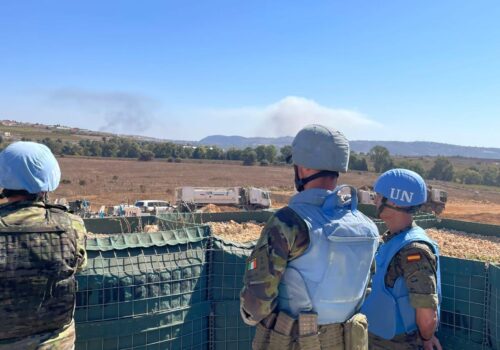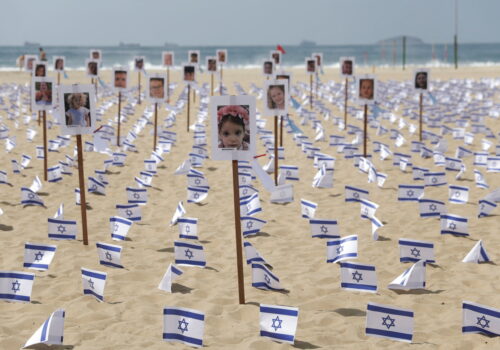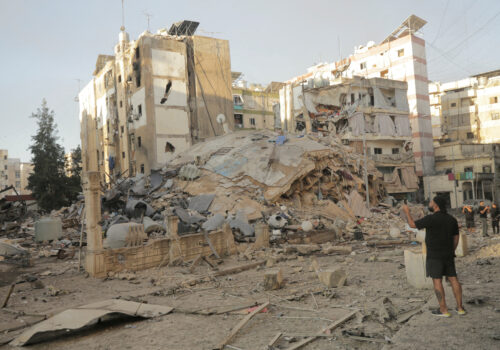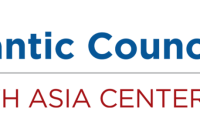Tragic death of aid worker underscores Gaza’s postwar challenge
Hamas’s recent alleged killing of an aid worker from a US-based nonprofit highlights the security challenges looming in Gaza’s postwar future. On September 27, Islam Hejazy, the Gaza program manager of the US nonprofit HEAL Palestine, was shot and killed by multiple gunmen in a drive-by shooting in Khan Younis. While Hamas claimed the incident was a case of mistaken identity, Hejazy’s family expressed disbelief in a statement shared with Palestinian media: “That was a bigger shock… How would an innocent soul be wasted and ninety bullets fired at her car just for mistaken identification?” Anti-Hamas Palestinian activists also doubt Hamas’s claim, suspecting that Hejazy was deliberately targeted for refusing to surrender aid funds to the terrorist group.
The tragic killing is a stark reminder that, while the Israel Defense Forces (IDF) have significantly diminished Hamas’s military offensive capabilities against Israel, the terrorist group retains considerable internal security power in Gaza. Now, with much of its fighting force decimated and its military infrastructure in ruins, Hamas is turning to the same violent tactics it used in earlier years to tighten its grip on Gaza, including exerting its authority over international civil institutions and non-governmental organizations (NGOs). After 2007, when Hamas became the de facto governing body in Gaza, the group systematically extorted and siphoned funds from charities and infiltrated the organizations’ personnel. Those who questioned these practices were met with threats of violence and intimidation, ensuring compliance and silencing dissent. These abusive practices enabled Hamas to quickly gain control over all aspects of social, political, and economic life in the territory. Additionally, placing its members within NGOs enabled Hamas to divert money to fund its military operations. This access also allowed the group to embed military posts within or beneath the organizations’ buildings. A notable example is Hamas’s infiltration of the United Nations Relief and Works Agency (UNRWA), which relied on US funding for nearly 30 percent of its annual budget. Following the October 7, 2023, terrorist attack, it was revealed that nine UNRWA staff members were Hamas operatives who participated in the operation, and a Hamas command center was discovered beneath UNRWA headquarters in Gaza City.
SIGN UP FOR THIS WEEK IN THE MIDEAST NEWSLETTER
As the United States and other countries pledge support for rebuilding Gaza and establishing a postwar governance plan, it’s crucial to implement mechanisms that prevent Hamas from exerting control over international NGOs and civil institutions. Allowing Hamas to engage in such practices enables the group to reconstitute itself and perpetuate the fundamentalist beliefs that fuel its violence against Israel. The success of any postwar plan hinges on a strong security framework that prevents Hamas from regaining power, so it is essential to consider the following recommendations for a security strategy:
- Strengthen security coordination between NGOs and Israel Any postwar plan should strengthen engagement and coordination between international NGOs and the government of Israel, including the Israeli Defense Ministry’s Coordination of Government Activities in the Territories (COGAT) unit. COGAT has overseen humanitarian aid efforts in Gaza throughout the conflict, including food deliveries and medical evacuations. Clear guidelines and stronger coordination with COGAT will improve NGOs’ operational safety and effectiveness in Gaza. A framework that requires NGOs to work with Israel on background checks for local hires would also help reduce the risk of Hamas infiltration, though a due process mechanism should be included to allow transparency for NGOs and staff.
- Enhance US humanitarian aid funding accountability and oversight The United States should implement stricter requirements for humanitarian aid funding to ensure that aid reaches legitimate beneficiaries and is not diverted to Hamas or other militant groups. While current funding procedures explicitly prohibit grantees from hiring personnel affiliated with terrorist organizations, this requirement has proven insufficient in preventing Hamas from compromising US-funded grantee organizations. Hamas does not need to infiltrate all NGOs to exert control: It can compel NGO staff to comply with its requests, whether for extortion or facility access. The threat of violence is often enough for personnel—even those who are neither sympathetic to nor affiliated with terrorist organizations—to acquiesce to Hamas’s demands.
Additionally, preventing Hamas from exerting control over NGOs is complicated by the widespread hostile attitudes toward Israel among the Palestinian population in Gaza. While recent polling data shows declining support for Hamas among Palestinians in Gaza, the post-October 7 Israeli military response has likely reinforced these negative beliefs, further fueling the conditions that lead to militancy. Greater attention must be given to reforming US funding guidelines to address both the coercive pressure Hamas exerts on NGO staff and the underlying attitudes that contribute to the growth of militancy. Potential approaches include regular staff training, clear penalties and termination policies for promoting violence, stricter vetting standards for NGO hires requiring security approval from Israel, and continuous monitoring of operations and finances.
- Establish a comprehensive security reporting and enforcement system Policies prohibiting NGOs and their staff from affiliating with Hamas are insufficient on their own to prevent the terrorist group from gaining control. An alternative security force to both the IDF and Hamas militants must be established to address security issues in Gaza. While the specifics of this security force are still to be determined, it should be equipped to manage a secure and accessible reporting mechanism that enables NGOs and whistleblowers to safely report instances of coercion or abuse by Hamas or other militant groups. This security force must have the legal authority, resources, and operational capacity to thoroughly investigate reports, enforce preventive measures, and respond to offenders. Additionally, international partners should provide technical assistance and oversight to strengthen the security force’s investigative and enforcement capabilities.
While many postwar plans have been suggested, none will secure long-term peace for Gaza and Israel without a robust security framework that deters Hamas and other militant groups from reconstitution. Implementing clear measures that prevent these groups from exerting influence over international NGOs and civil institutions, which are expected to receive millions in funding to rebuild Gaza, will significantly weaken their capacity to do so. Failure to implement such a framework will keep Gaza in a cycle of conflict with Israel. The international community has long been criticized for its inaction as Hamas gradually tightened its control over NGOs and civil institutions. The October 7 terrorist attack and the destruction that followed in Gaza serve as a sobering reminder of what happens when action is not taken to prevent and address this security challenge.
Alicia Nieves is a legal advocate and member of the Atlantic Council’s Counterterrorism Project. She co-founded The Gaza Family Project, an initiative led by the Arab American Civil Rights League (ACRL), dedicated to assisting American families rescue their loved ones trapped in Gaza during the Israel-Hamas war.
Further reading
Tue, Oct 22, 2024
Israel versus Hezbollah: Not a full-scale war—yet
MENASource By Nicholas Blanford
The Israeli army appears to have absorbed some of the lessons of its troubled 2006 experience fighting against Hezbollah.
Fri, Oct 4, 2024
One year after Hamas’s October 7 terrorist attacks, here’s how the region has changed
MENASource By Atlantic Council experts
One year on, the Gaza War remains unresolved and the potential for war across the region is becoming more likely. Atlantic Council experts take on questions about the war’s impact—and its future.
Fri, Oct 4, 2024
Israel has lost its patience
MENASource By Nicholas Blanford
Since September 16, Israel has removed the gloves to stage a massive aerial bombing campaign targeting Hezbollah’s top political and military leadership and weapons sites to force the Iran-backed group to yield and redeploy its forces away from Lebanon’s southern border.
Image: FILE PHOTO: Palestinians gather to receive aid, including food supplies provided by World Food Program (WFP), outside a United Nations distribution center, amid the Israel-Hamas conflict, in Jabalia in the northern Gaza Strip, August 24, 2024. REUTERS/Mahmoud Issa/File Photo



